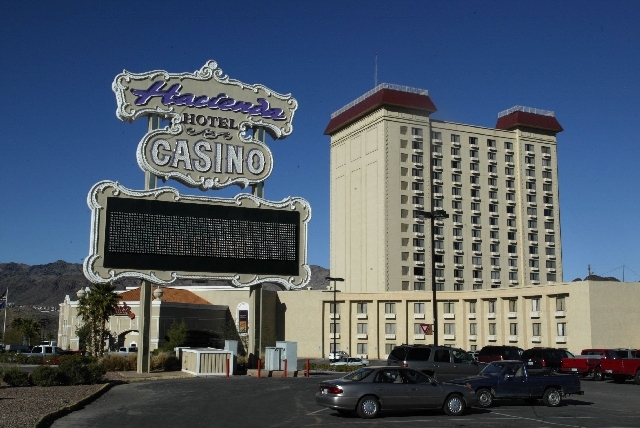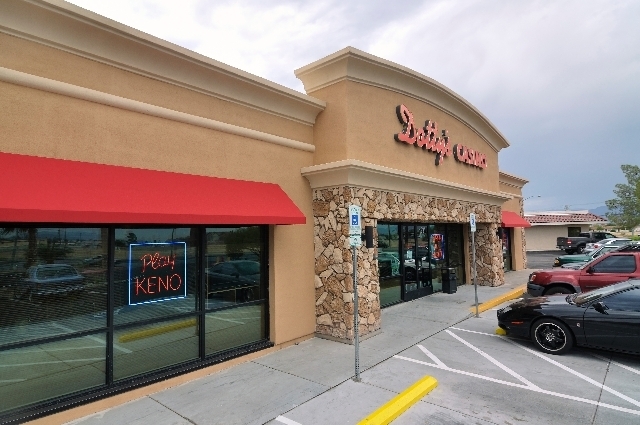Tavern operator Dotty’s to acquire Hacienda near Boulder City
Tavern operator Dotty’s, whose controversial business model inspired casino industry-led changes to statewide gaming regulations, is acquiring its first full-fledged hotel-casino.
The company is buying the Hacienda outside Boulder City on U.S. Highway 93, roughly 3 1/2 miles from Hoover Dam.
A sales price was not revealed. A formal announcement of the sale is expected next week, sources said. A spokesman for Dotty’s declined comment Friday. A voice message on the line for Hacienda General Manager Kathy Hernandez said she was out of the office until Monday.
Dotty’s operates more than 80 statewide stand-alone taverns, in addition to serving as the slot machine route operator for gaming areas inside Nevada-based Food 4 Less and Kmart stores.
Dotty’s parent company, Nevada Restaurant Services, is owned by Craig Estey, who created the business model in Oregon and brought the concept to Nevada in 1995.
The Boulder City Review reported late Thursday on its website that employees of the 370-room had been told this week the sale was taking place and they would have to reapply for their positions.
The Hacienda is owned by Michael Ensign, William Richardson and David Belding. The three men had been involved with casino operations in Nevada that were sold to the Mandalay Resort Group. Ensign is the father of former Nevada Republican U.S. Sen. John Ensign.
The Hacienda was built on the site of the Gold Strike Casino, which was destroyed by a fire in 1998. The renamed hotel-casino opened 17 months later. The property is on an 11-acre site and the owners also control 21 acres across the highway.
The hotel-casino includes 19,000 square feet of gaming space, meeting facilities, a gift shop and movie theaters. The sports book is operated by William Hill.
The Hacienda is 2 1/2 miles from Boulder City, which does not allow gaming within its city limits.
Dotty’s business model came under fire from rival tavern operators and the Nevada Resort Association in late 2010. Opponents said the operations were nothing more than a glorified slot machine parlor, offering snack food and minimal alcohol while focusing solely on gaming.
The company also was accused of skirting state law by offering mostly slot machine wagering without the usual trappings of a tavern.
Opponents argued the lack of a full kitchen allowed Dotty’s to avoid regulations governed by a voter-enacted smoking prohibition, which banned tobacco use where food is served.
Dotty’s officials said the business model addressed an audience that didn’t frequent the typical tavern. Dotty’s, they said, also took over tavern locations that had gone out of business.
In 2011, the Nevada Gaming Commission amended regulations governing taverns, requiring Dotty’s and similar small businesses with gaming to have a nine-seat bar, 2,000 square feet of public space and a kitchen operating at least half the time the business was open.
Clark County enacted changes in tavern laws to ensure that gaming was an incidental part of the business model, as opposed to being the key source of revenues.
Dotty’s sued Clark County in federal court over the changes, but a federal judge tossed out the lawsuit in 2012. Also, state lawmakers changed anti-smoking regulations to allow the activity in places where food is served.
Since the change in regulations Dotty’s has continued to expand its operations in the state by opening stand-alone facilities with other amenities.
Nevada gaming regulators would have to approve the Hacienda transaction.
Contact reporter Howard Stutz at hstutz@reviewjournal.com or 702-477-3871. Follow @howardstutz on Twitter.


















